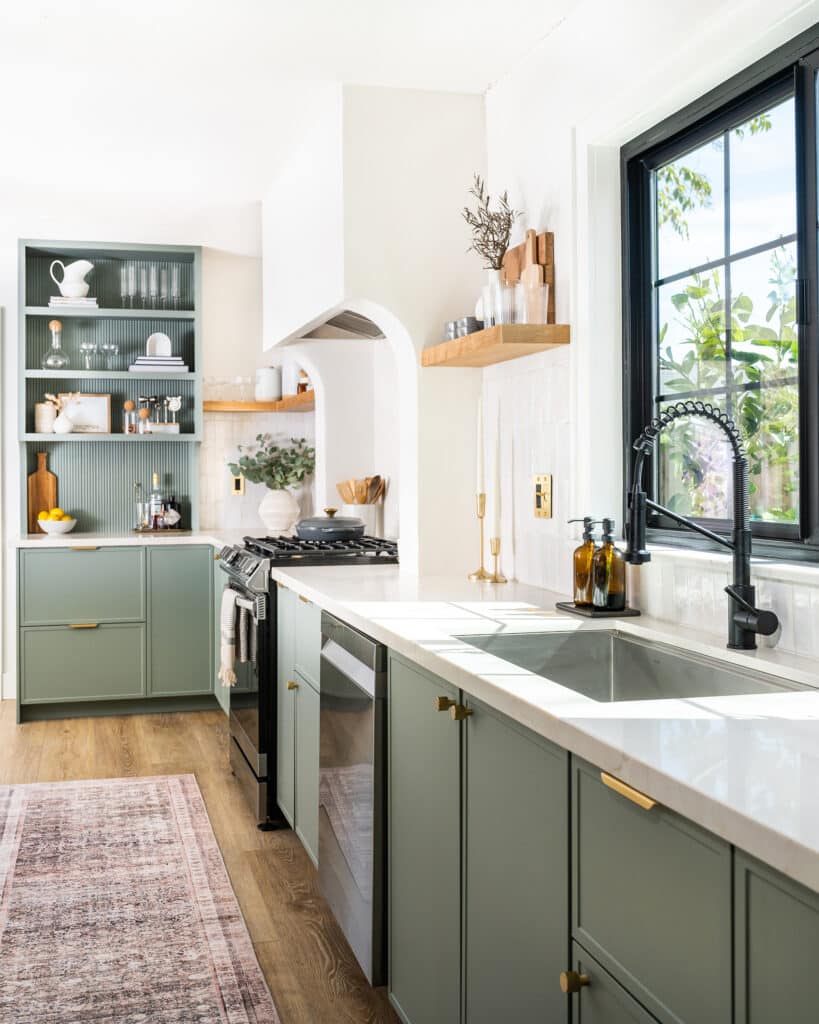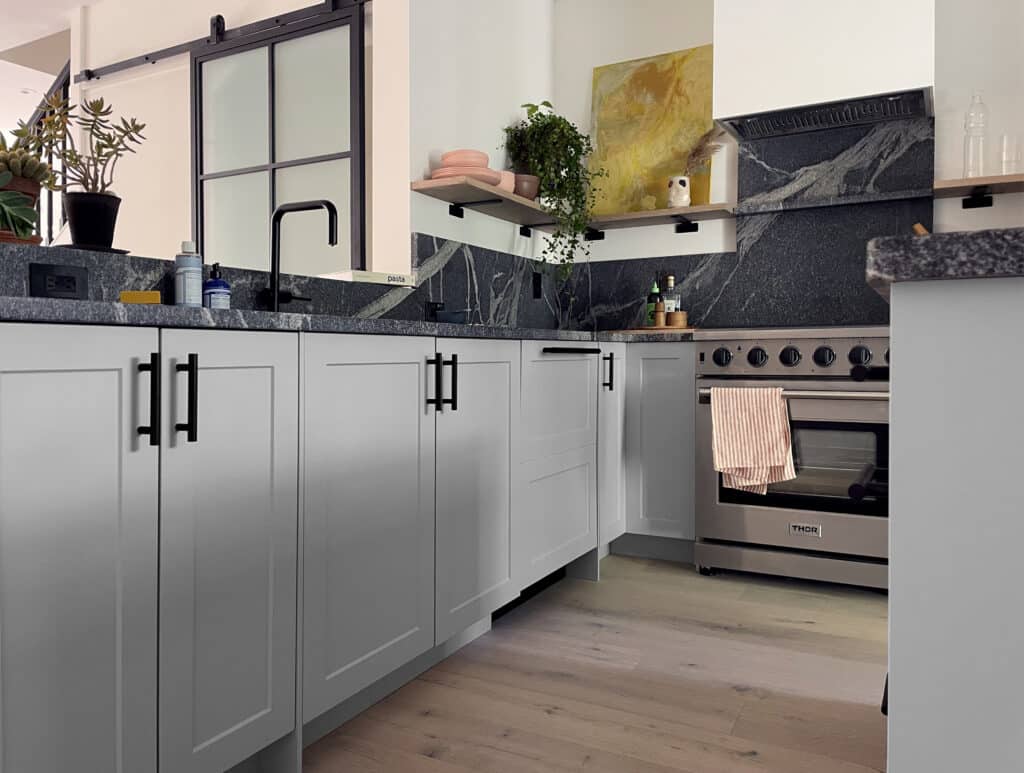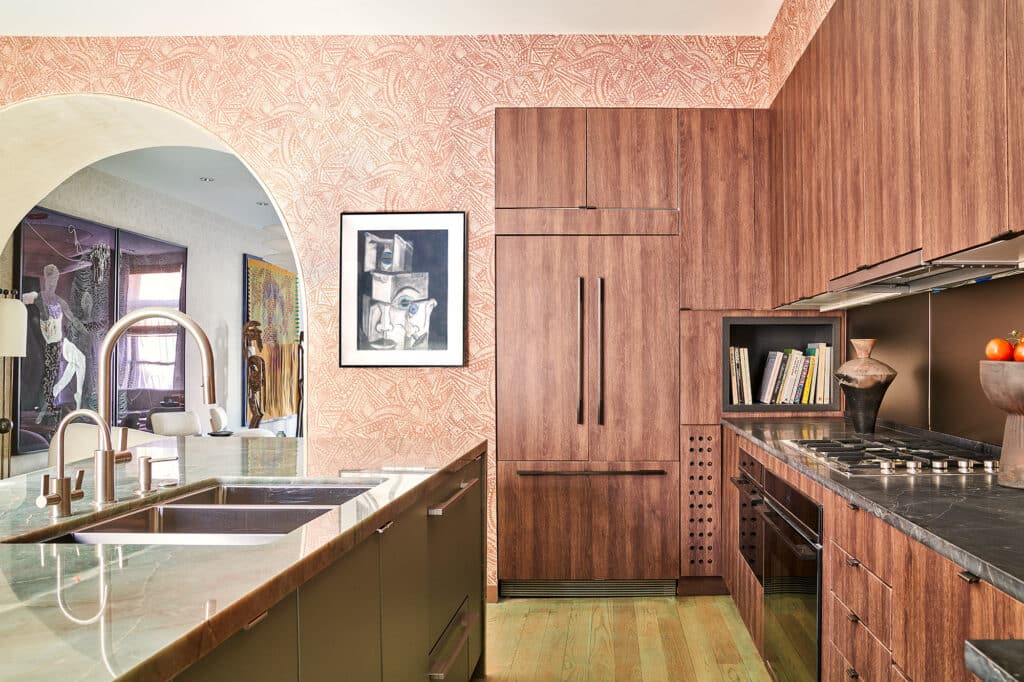2020 was a tough year, there’s no denying that. But it also helped illuminate what’s important and how as a collective, each and every one of our actions can make a difference. Whether you joined a Black Lives Matter protest or took those first steps to educate yourself on systemic racism; donated to a local food bank during the pandemic or simply wore a mask and stayed inside; what you said and did felt more important. As 2021 has already shown us, it continues to be important. In that spirit, we want to pledge that we will not be using the term “master” in our content due to the historical connotations. Instead, we will use the terms “main” or “primary” to describe the largest bedrooms and bathrooms in a home.
The design industry still faces many challenges, and using inclusive language is just one small action we are taking—please, join us. Supporting Black designers is easy (if you’re not already, following Black Artists + Designers Guild and Black Interior Designers Network on Instagram is a good place to start), solving issues like housing discrimination will take more time and determination. We hope this month’s Design History reminds you how powerful your words and actions are and how important it is to acknowledge the history, both good and bad, that has created our current day society and design industry.
Over the summer, after the death of George Floyd and the Black Lives Matter protests, real estate groups and publishers around the country announced that they would no longer use the phrase, “master bedroom” to refer to a home’s primary suite.
In fact, this wasn’t just a summer shake-up: many property developers had been phasing the term out of their lexicon for nearly a decade. The phrase “Master Bedroom” is thought to have been coined in the 1920s by the Sears catalog to advertise a certain kind of luxury bedroom designed to appeal to a heteronormative nuclear family where the primary breadwinner was masculine. Of course, a lot has evolved since and this narrow definition of home life is no longer real, relevant, or appropriate.
The term referenced advertising during a time when that kind of nuclear family was celebrated above all others. And just like many other ads that haven’t aged well, this one had long lived its course. (I’m calling to mind, for example, a 1961 ad for an electric stand mixer claiming that it would “[do] everything but cook—that’s what wives are for!”) This is exactly why New York City real estate agent, McKenzie Ryan no longer uses the term. She explained, “My goal as a real estate agent is for all parties to have a positive experience when looking at a property,”she explains “The terms “master” bedroom or “master suite” no longer provide that.”
So why were professionals across industries just taking issue with the word now (and what took so long)? The etymology of “master” isn’t so clear cut: it stems from Old English and initially referred to someone qualified to teach. Columbia University professor and linguist John McWhorter argues that words can develop a massive spread of meanings over time (just consider the various contexts of the term “pick up”). “There are usages of the word “master” that are clearly related to slavery, such as the master and slave boards of electronic equipment,” he says. And any use of a word that calls this to mind should be eliminated, but to eradicate all uses is “both linguistically naive and almost condescendingly oversensitive to black people.”
“I believe it does more harm to hang on to a term that offends people relative to the minimal amount of effort it requires to simply modify your language.”
—Nicole Gibbons
Interior and architectural designer Leyden Lewis weighed in with ADPro last August, saying that “a ‘master bedroom’ is a gendered, outdated term,” but cautioned against a full-scale language upheaval: “If we don’t have a language to code, we will lose the story of its origins. Suffer no more these words and focus on how to change the thinking, so we create an equitable world where everybody feels valid and their lives have meaning. Let’s think a little bit bigger than the words; let’s change the mindset.”
John Legend took issue with linguist housekeeping at the expense of fixing larger issues tweeting: “Real problem: realtors don’t show black people all the properties they qualify for. Fake problem: calling the master bedroom the master bedroom. Fix the real problem, realtors.”
After some reflection, interior designer and Clare paint founder Nicole Gibbons also decided something had to change. “The word may seem harmless at face value, especially when it’s become a part of our everyday lexicon, but I think it subconsciously normalizes white supremacy,” she said. “Adjusting your language is such an easy thing to do. I believe it does more harm to hang on to a term that offends people relative to the minimal amount of effort it requires to simply modify your words.” At Clare, the team has since adopted “main” in reference to the primary bedroom. Ryan often uses “owner’s suite” with her clients, but even that feels a little flat to her. She would like to find a phrase that feels a little more exciting to a potential buyer.
As Legend, Lewis, and Gibbons point out, the problem is bigger than just making sure you are using the correct phrasing. But choosing inclusive language is a powerful tool for change. And it’s one that we all have access to. Keeping up with inclusive language isn’t just about political correctness: It’s an effort to address systemic racism and to embrace diversity through our choice of words—something we care deeply about at Semihandmade. For now, that means replacing “master bedroom” with primary, main, or largest bedroom, and referring to the accompanying bathroom as the en suite. There are many more words that deserve a second look. We’ll be looking to linguists like McWhorter and others to guide us.
We’d love to hear from you: How do you use your choice of words as a tool for change?









Comments (3)
This was a very interesting read about something I had been noticing myself! The words we use are so important. Thanks so much for sharing <3
PS I LOVE SemiHandMade! I used your products (the Chris Loves Julia collection) in my condo's kitchen renovation last year. I've sold that place and look forward to buying a new one so I can complete another reno using your wonderful doors.
Thank you, Talisa! We’re so glad to hear you love Semihandmade and we agree that this is a really important conversation to have. It’s just one small action we are taking to bring about change but hopefully this leads to more important conversations and more positive change.
It’s really important to talk to your neighbors.
Those true, uninhibited conversations where we can fully express ourselves provide fertile ground for growth, understanding, compromises and solutions. They lead to community building. They lead to real friendship.
However it seems every week there is a word we cannot say, dare you be termed a racist, a bigot, or a homophobe. Express any opinion not pre-approved and you may be cancelled, doxed, and unemployed.
Many inhabitants of master bedrooms are now women in or out of a marital relationship and people of color (like me!). We are masters of our own destiny. We’ve made it. But our VICTORIES are erased when you then remove the potency of the word.
What does it mean to have a conversation but to exchange ideas? This “conversation starter” is the equivalent of duct tape over the mouth of your neighbor.